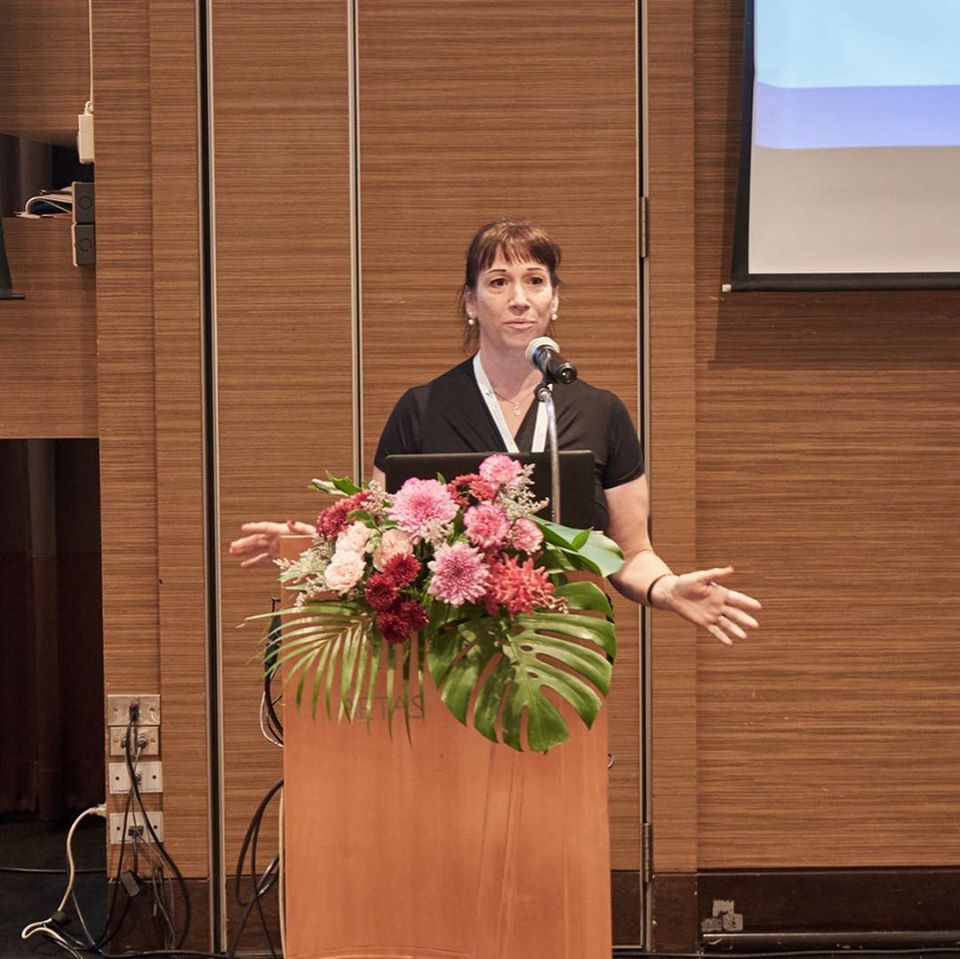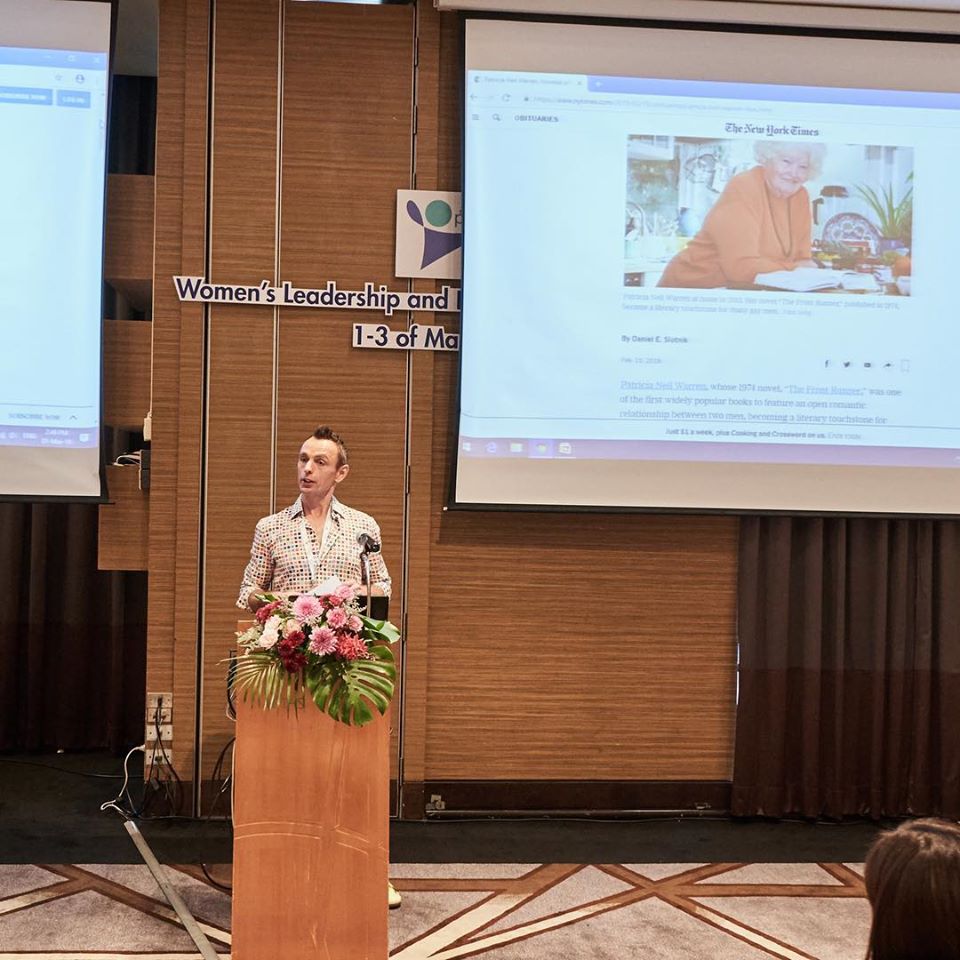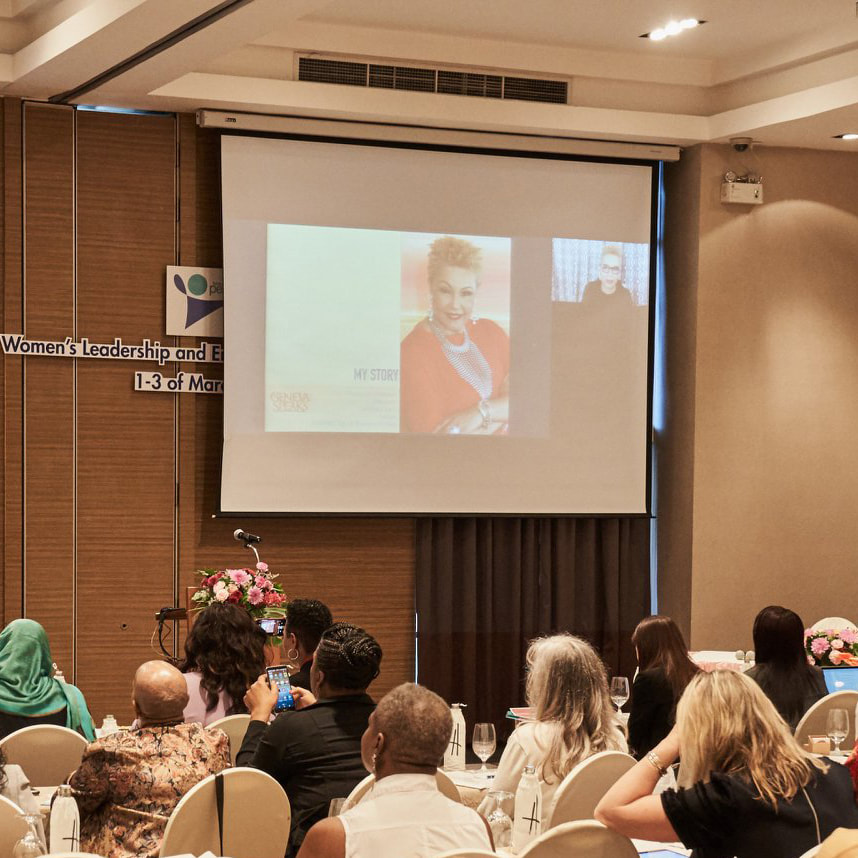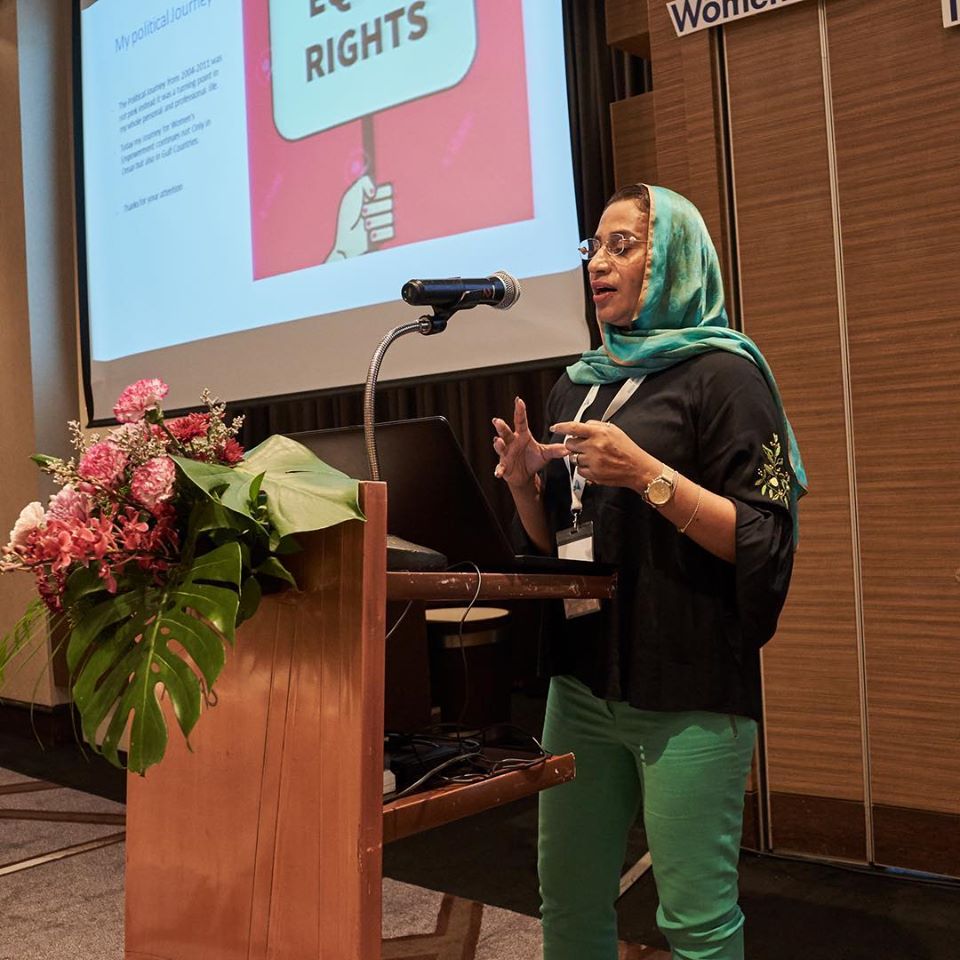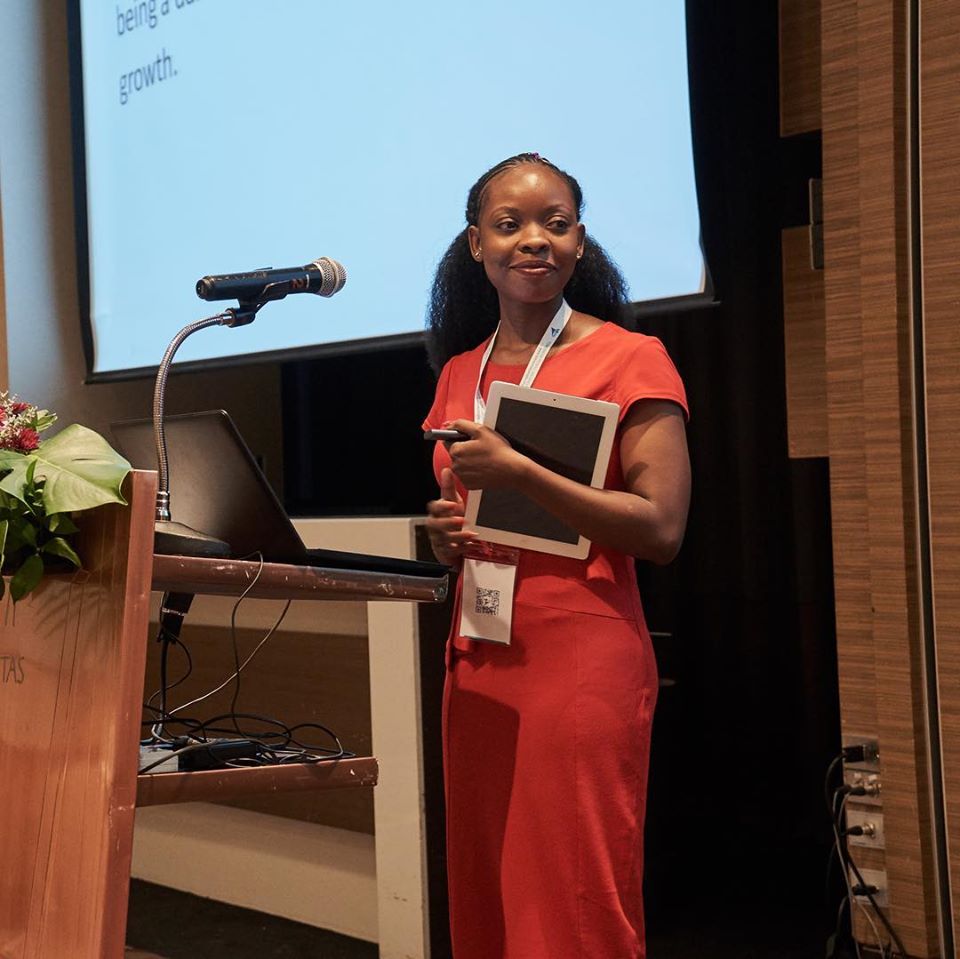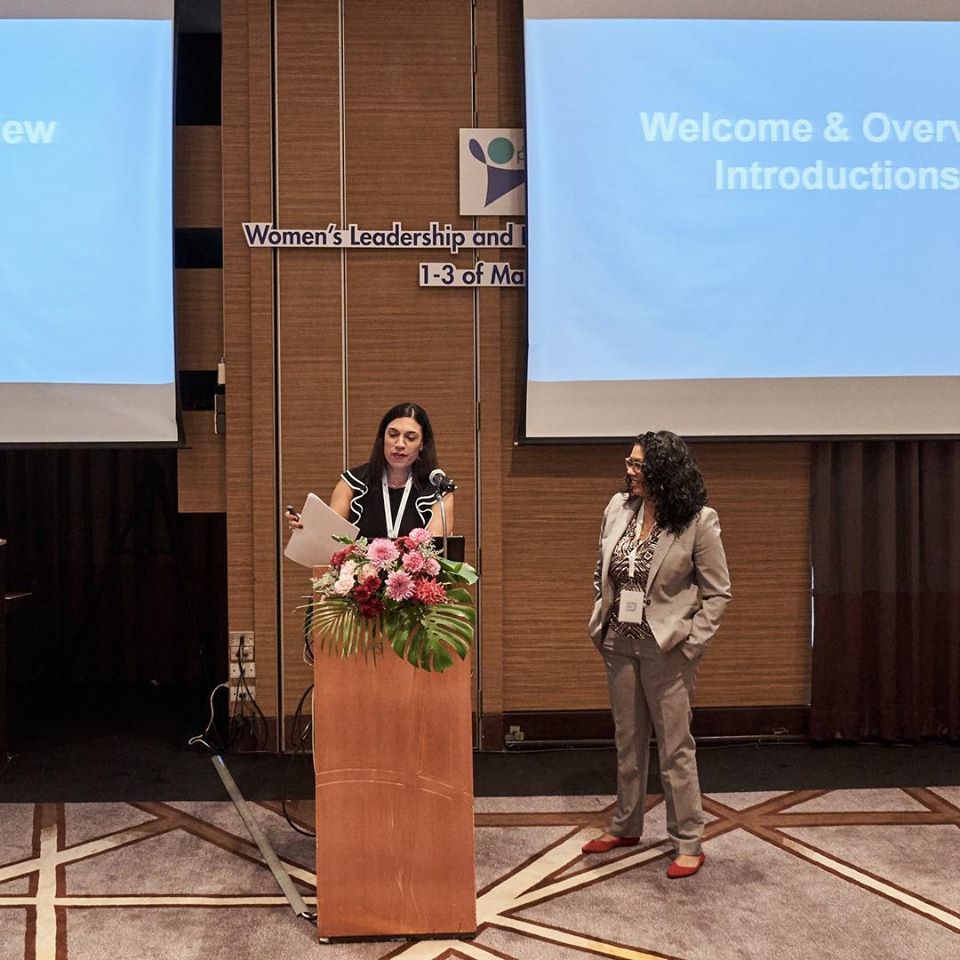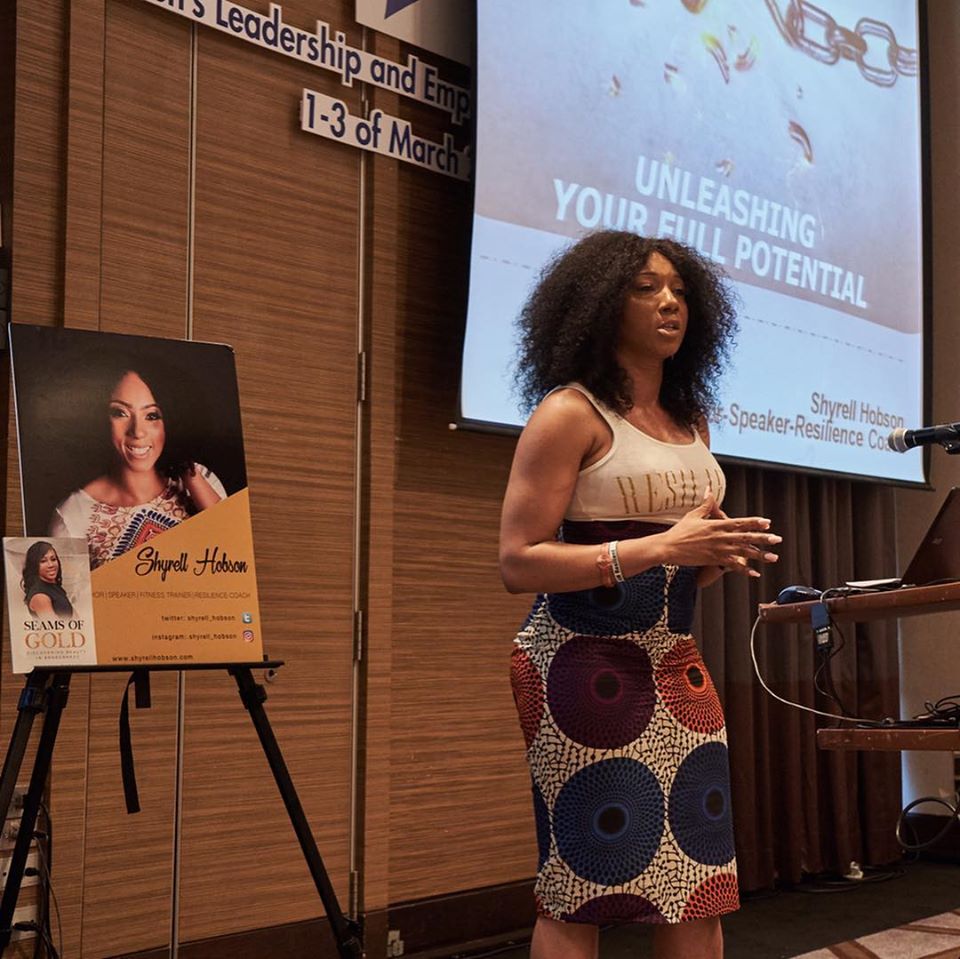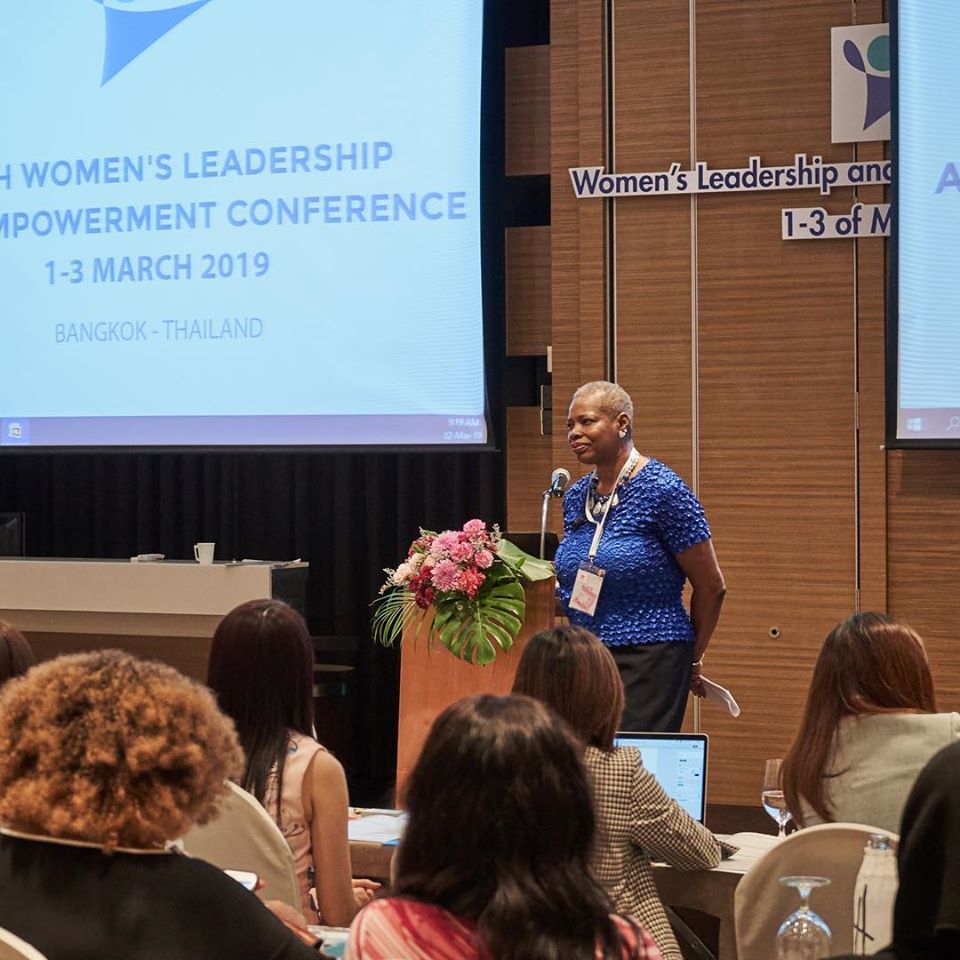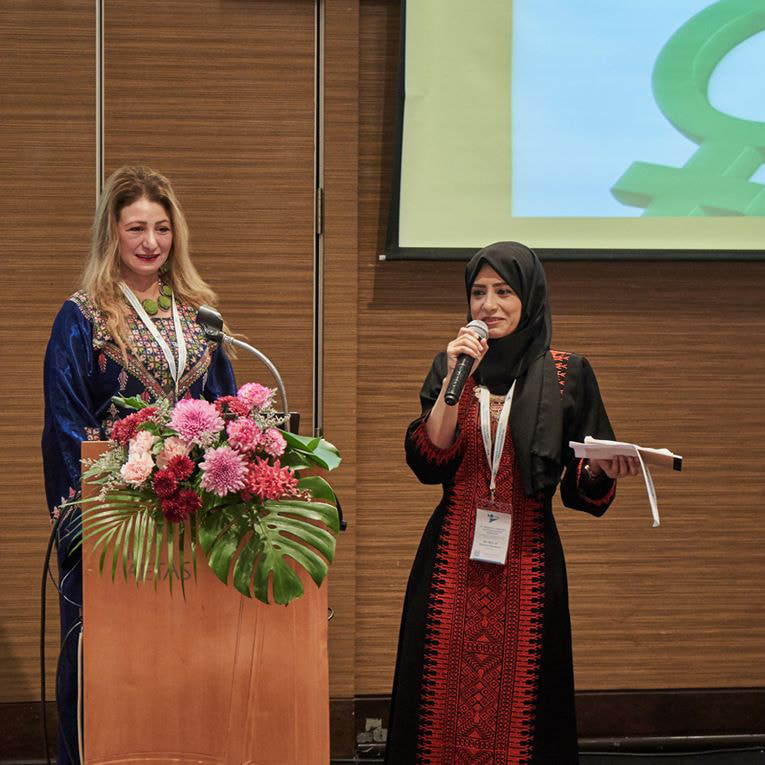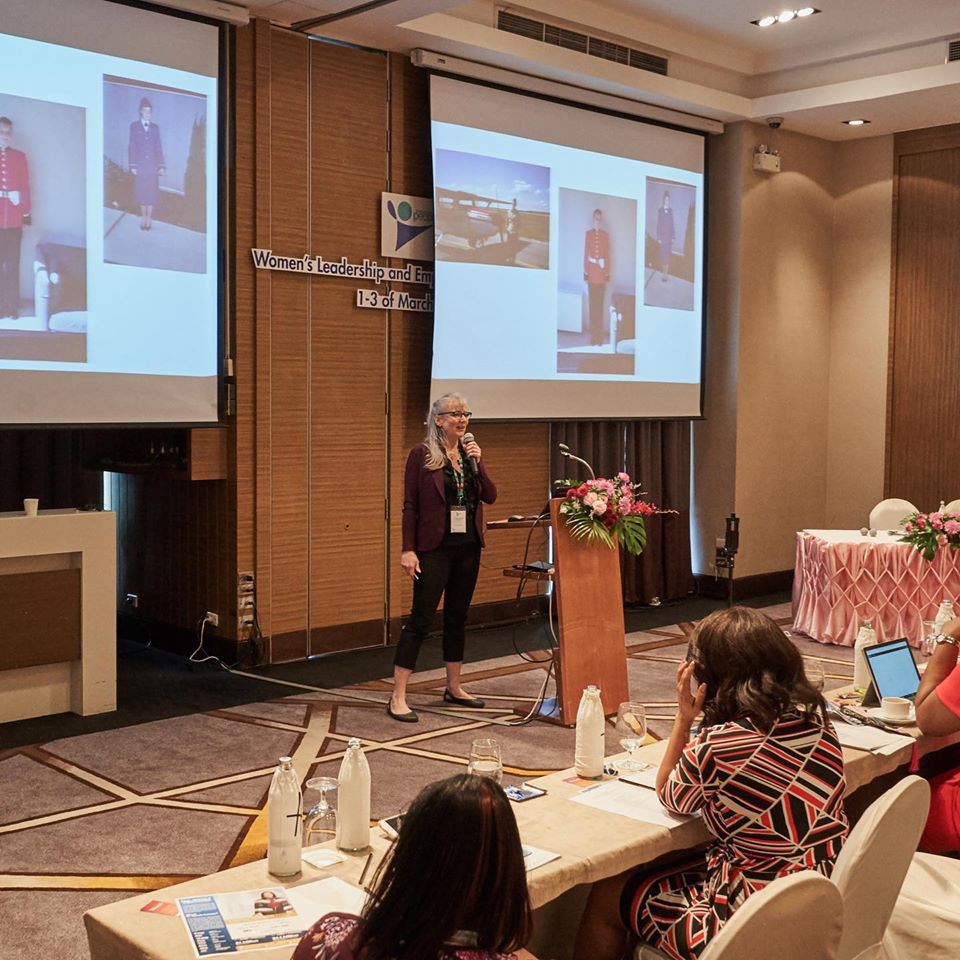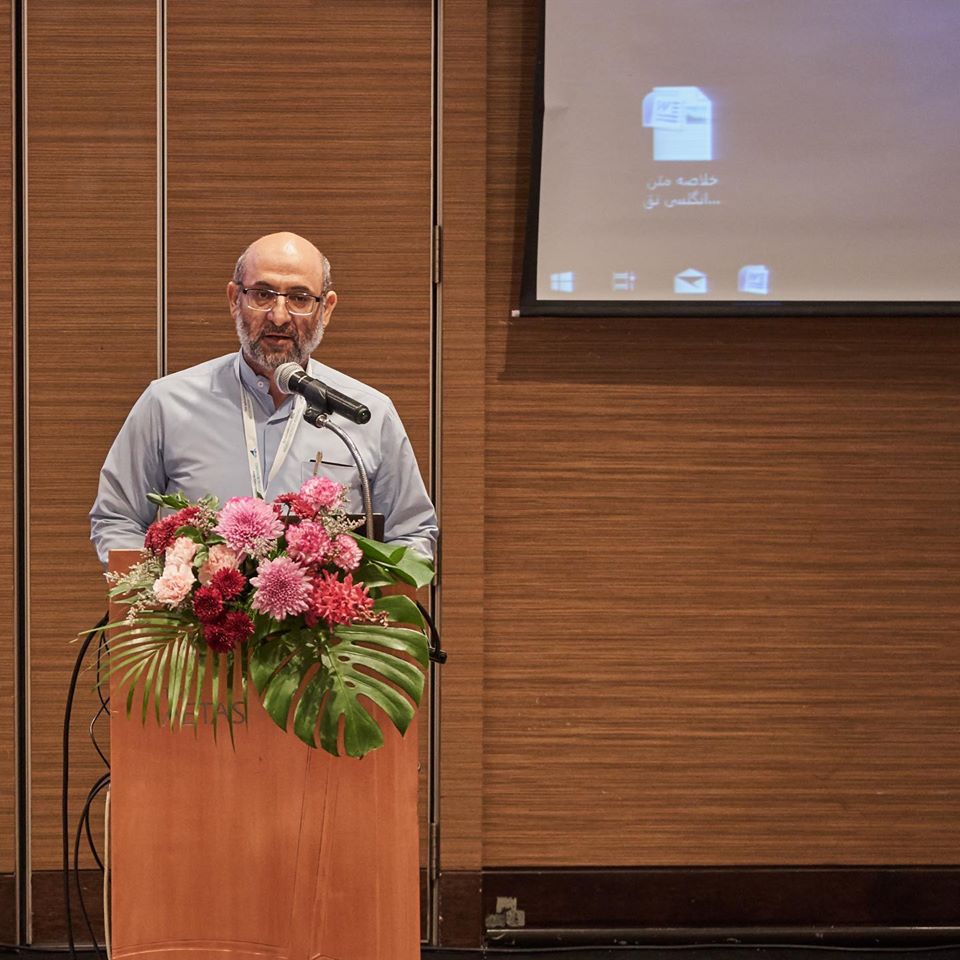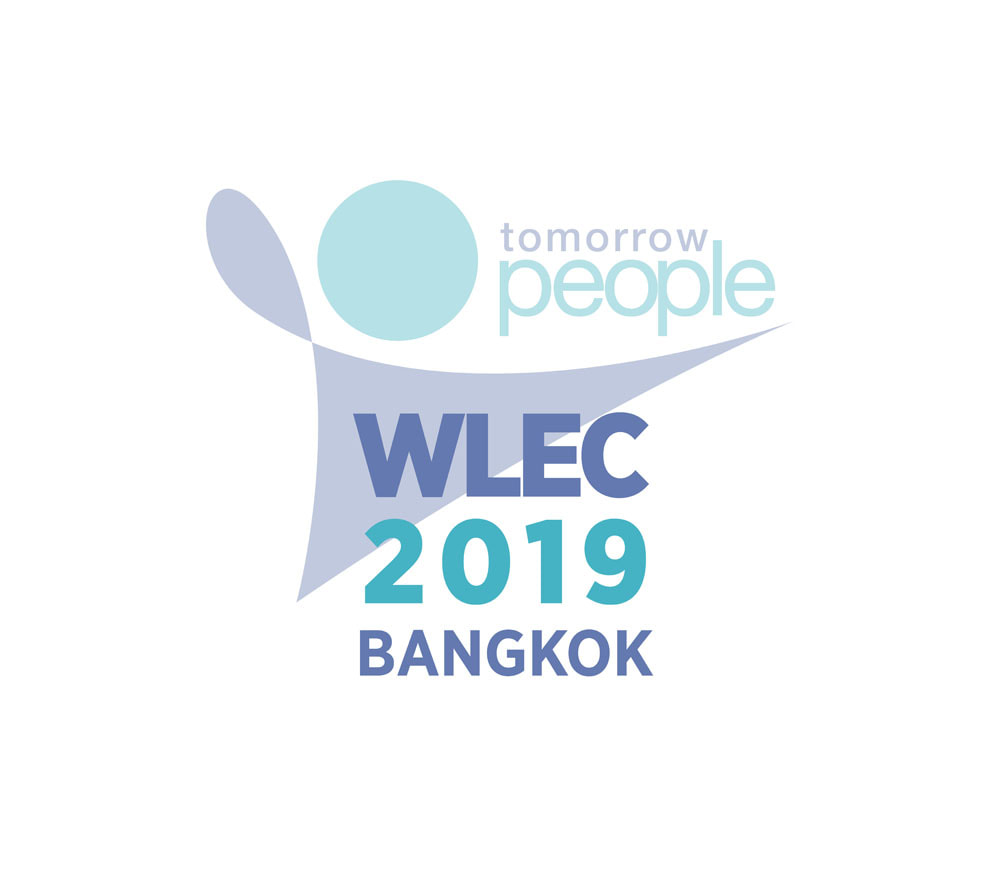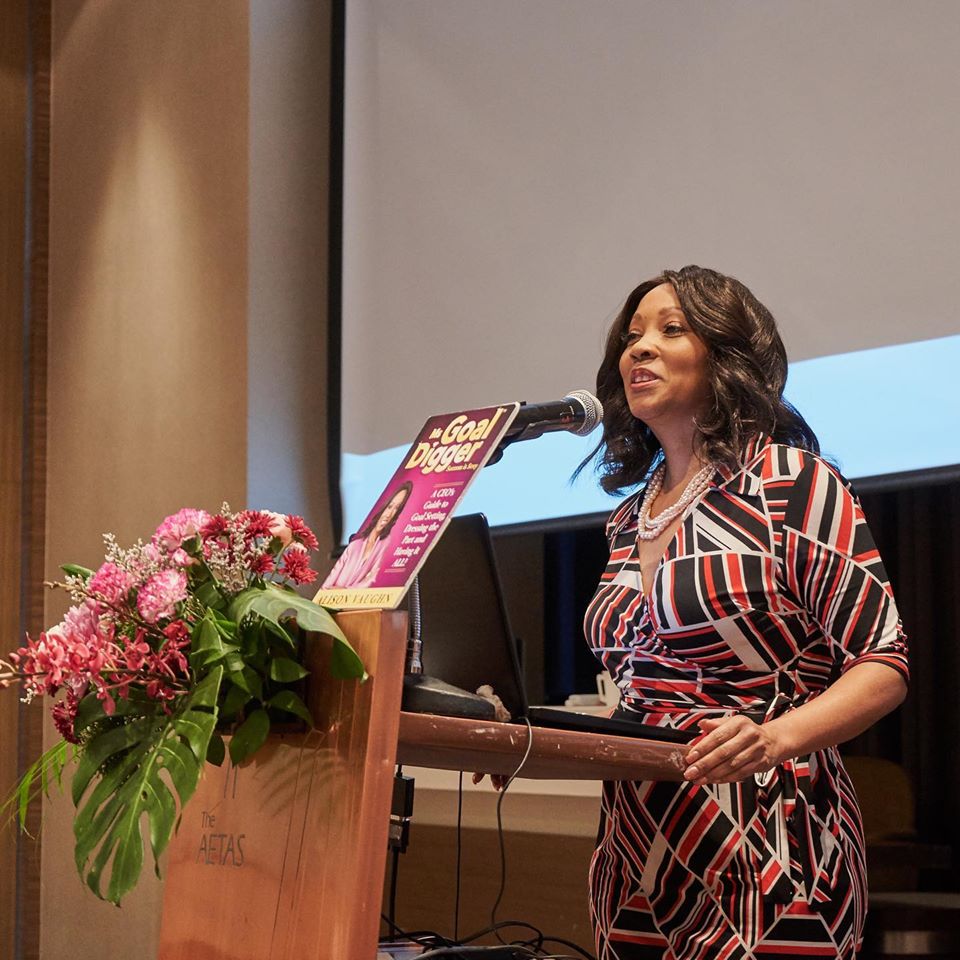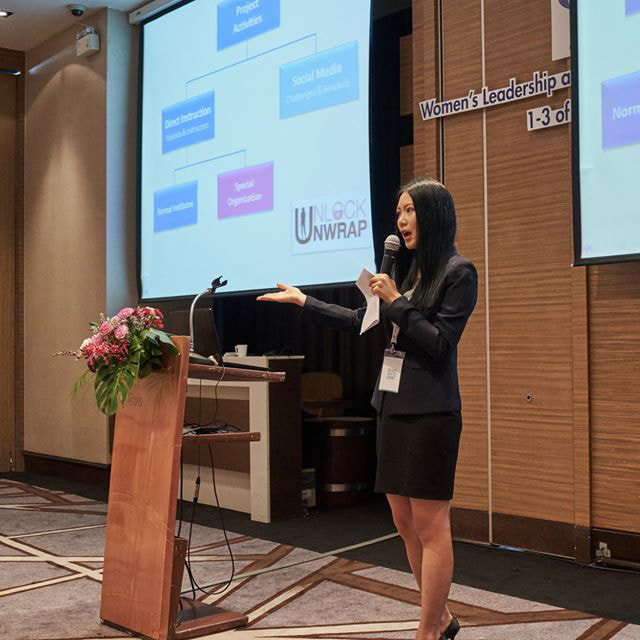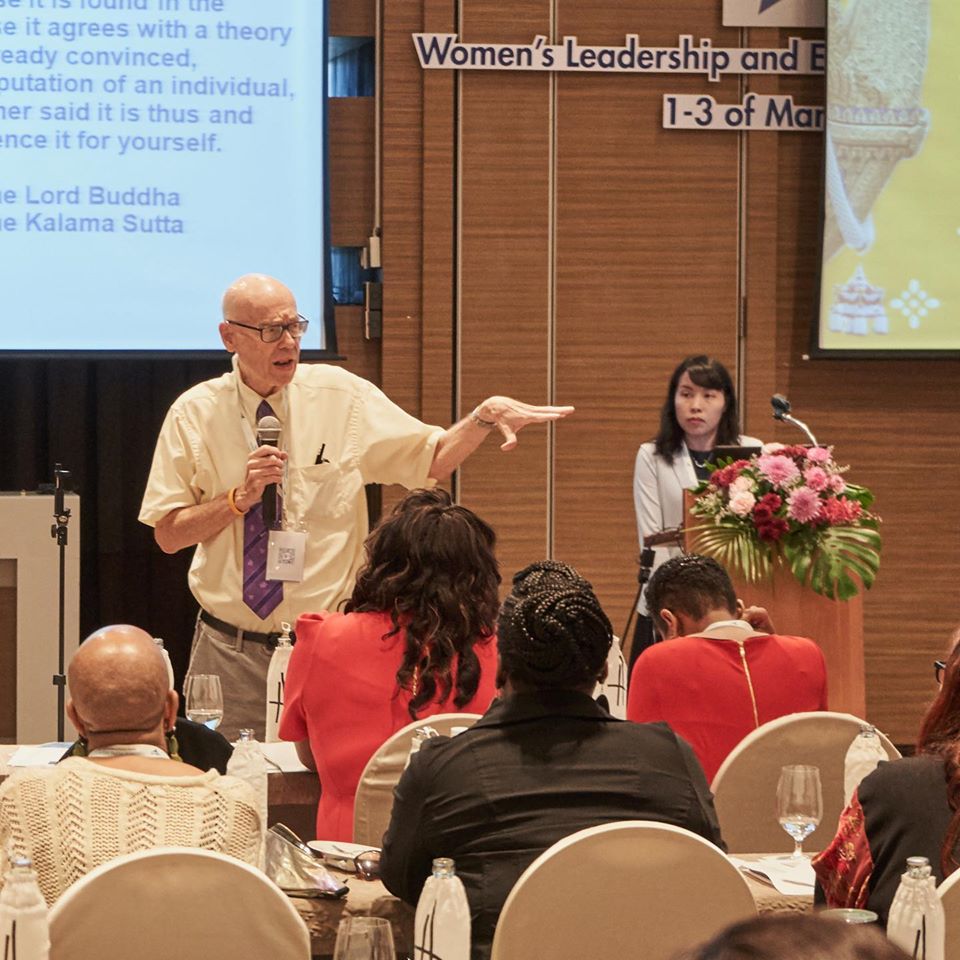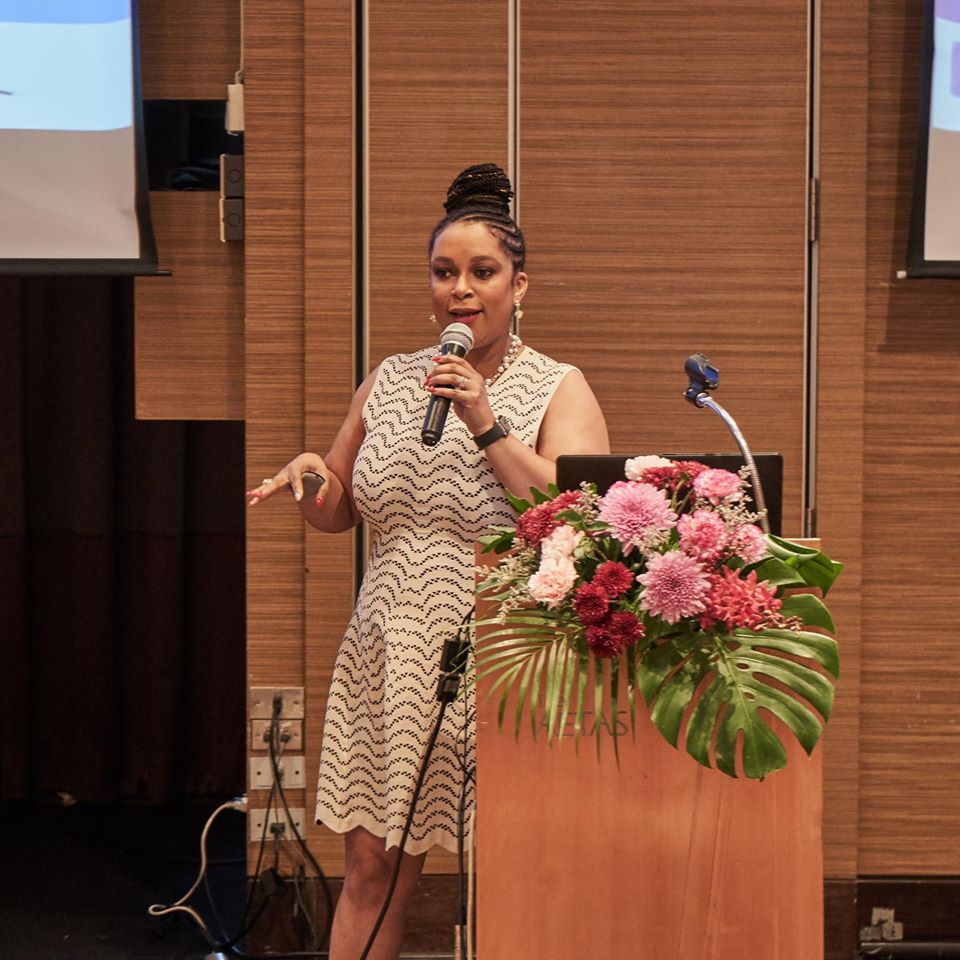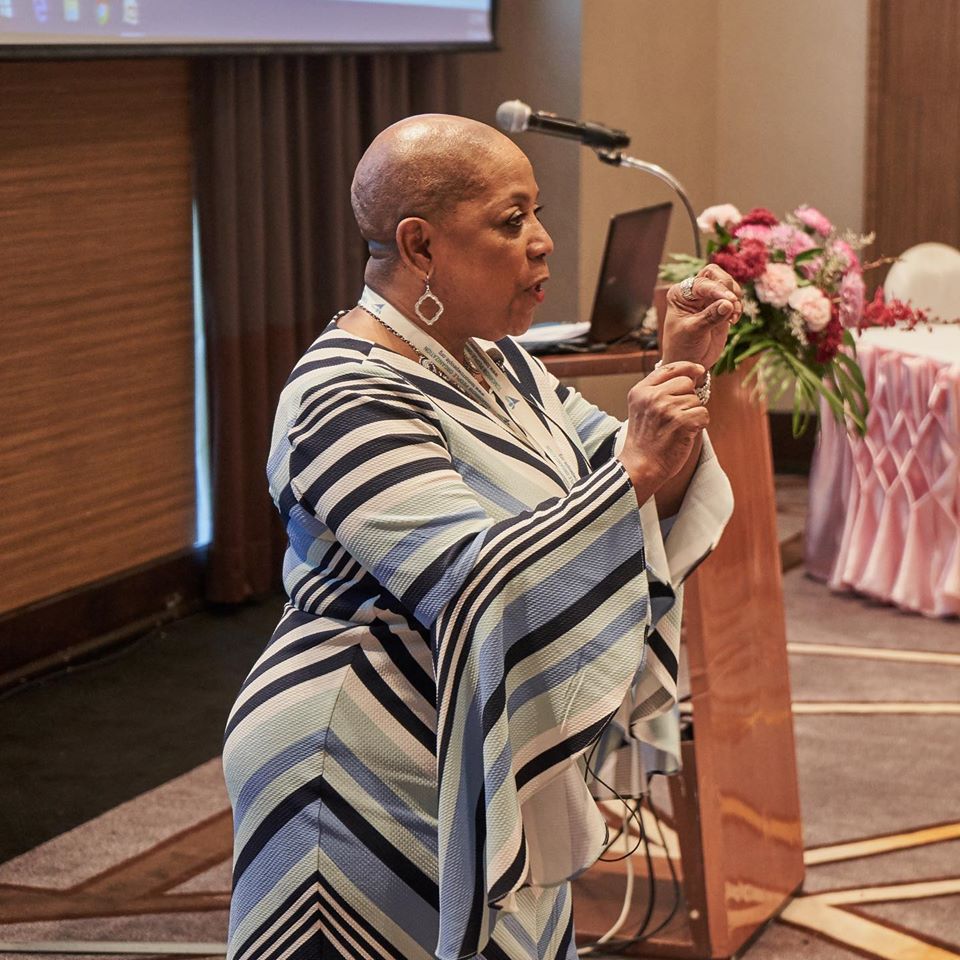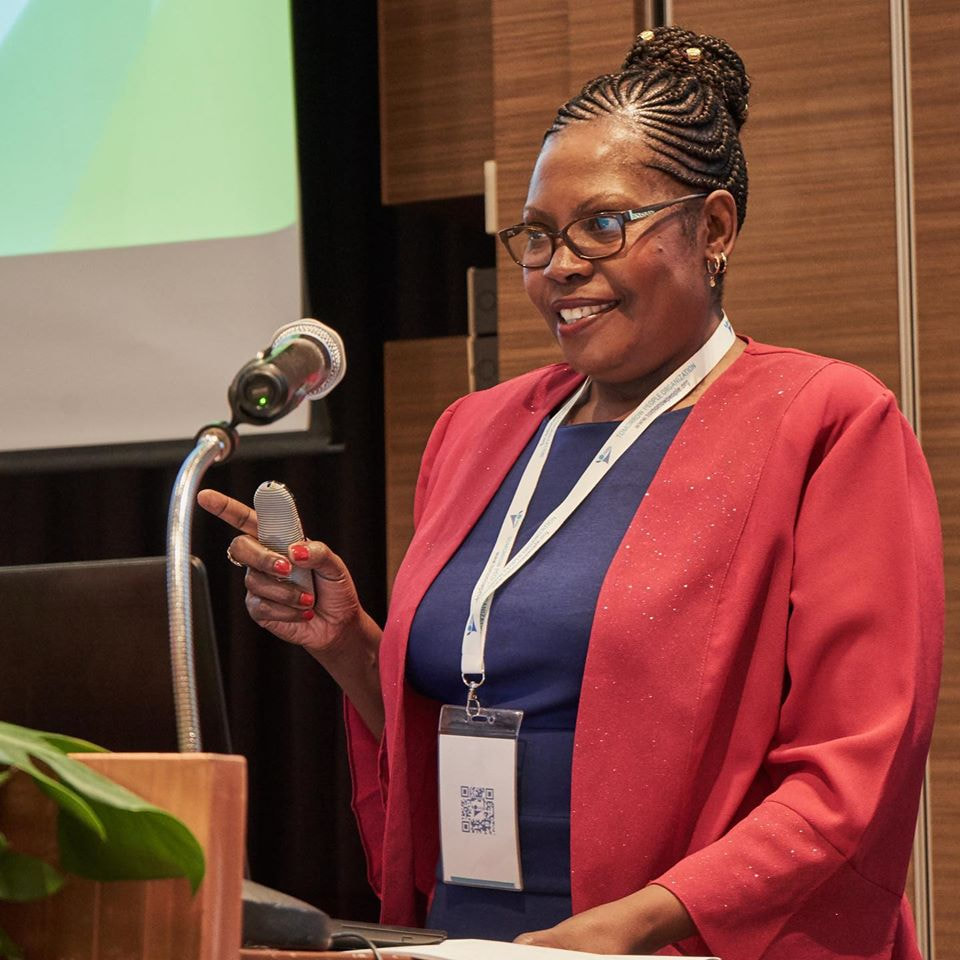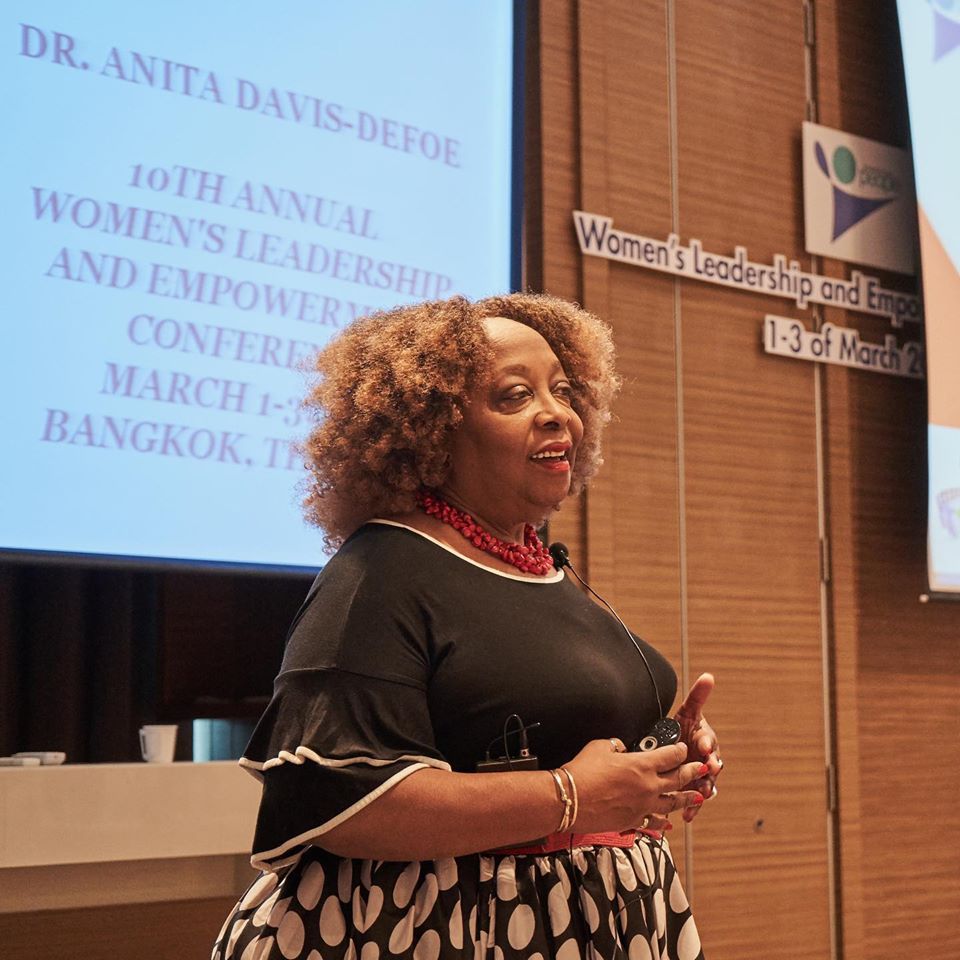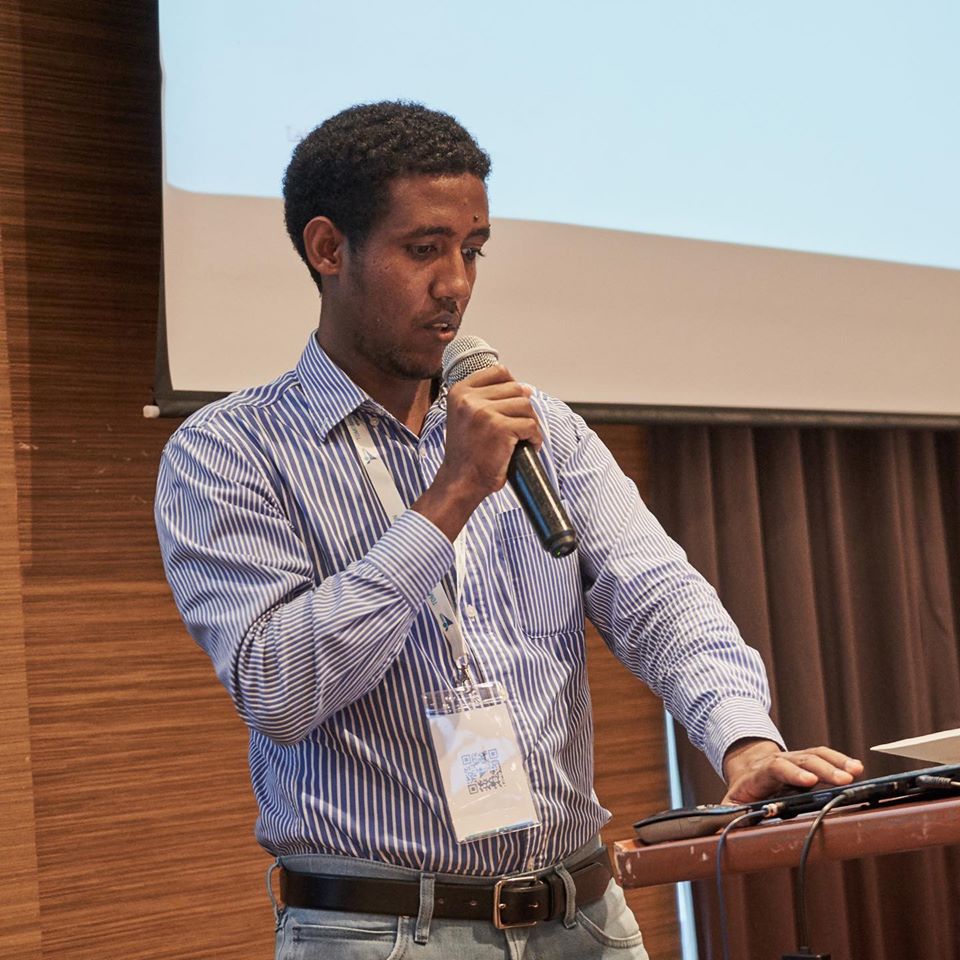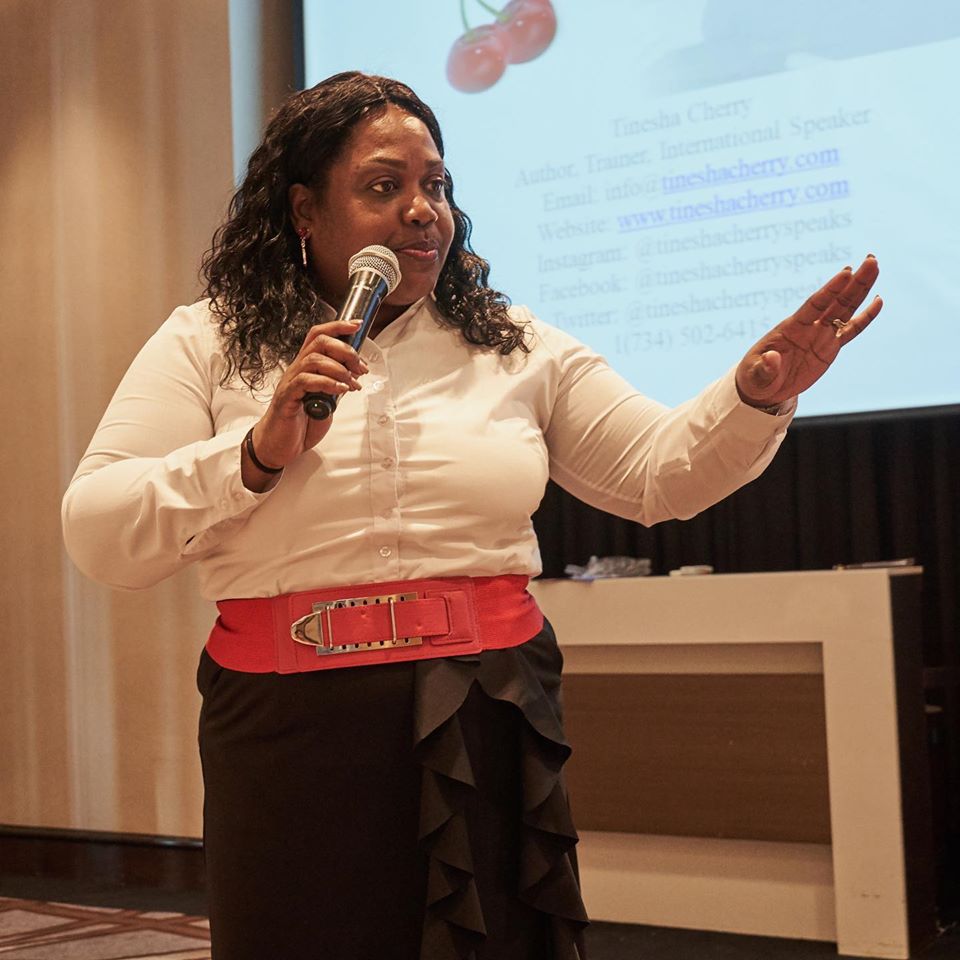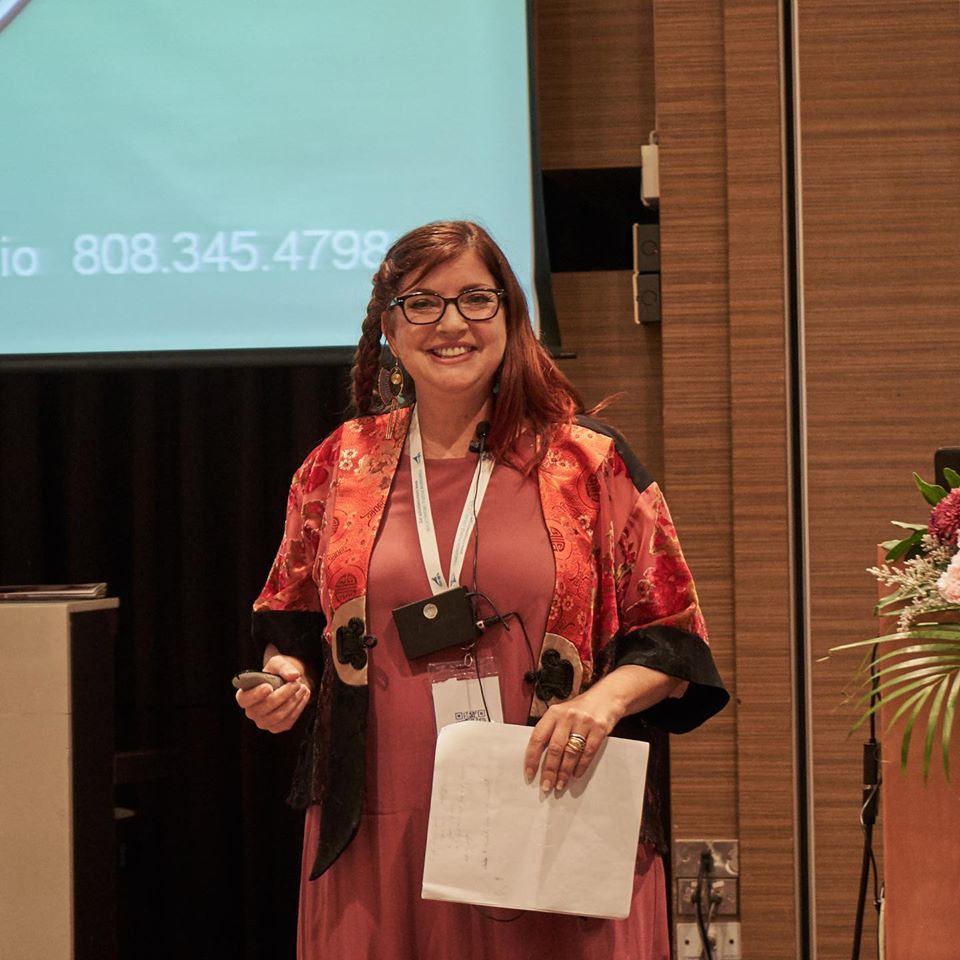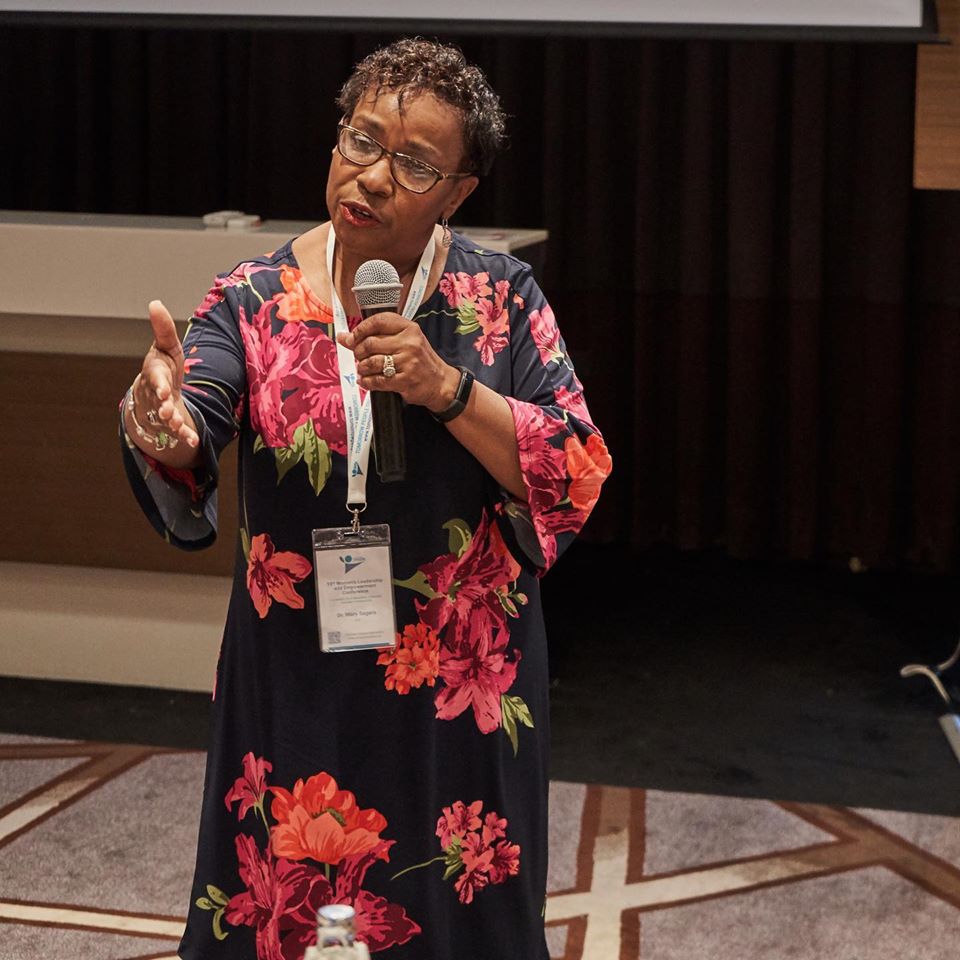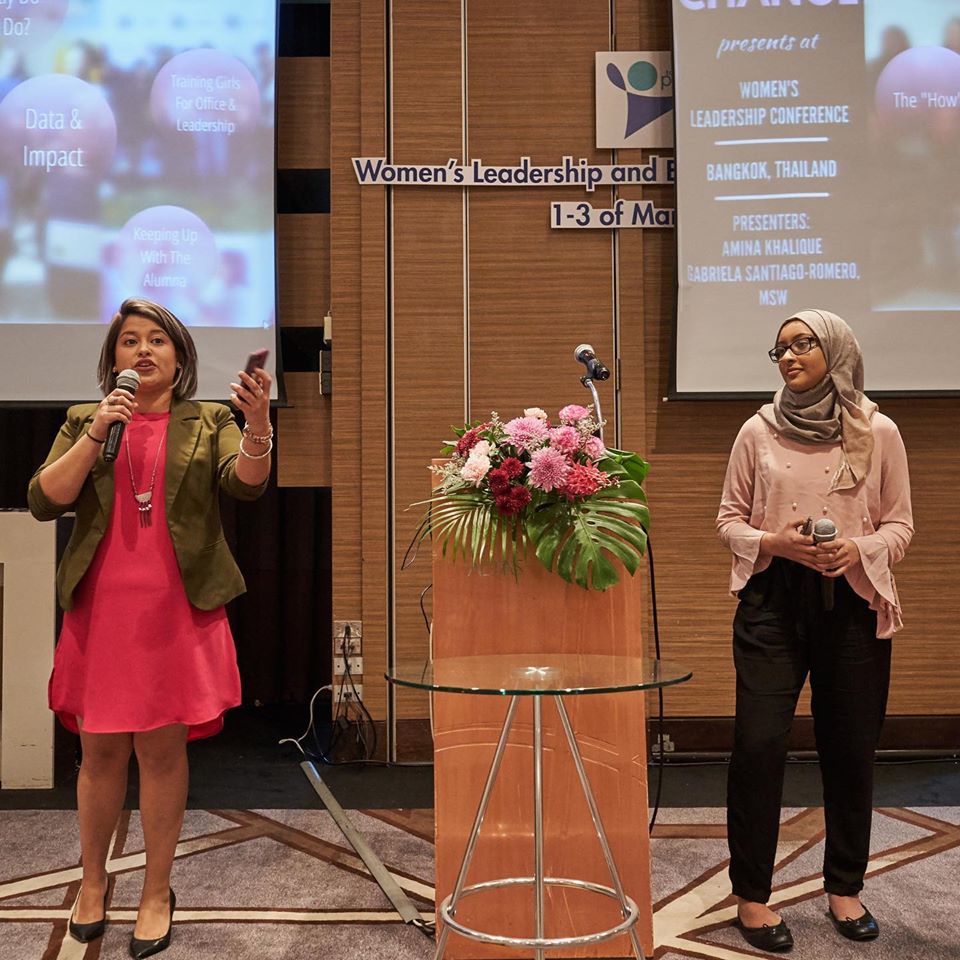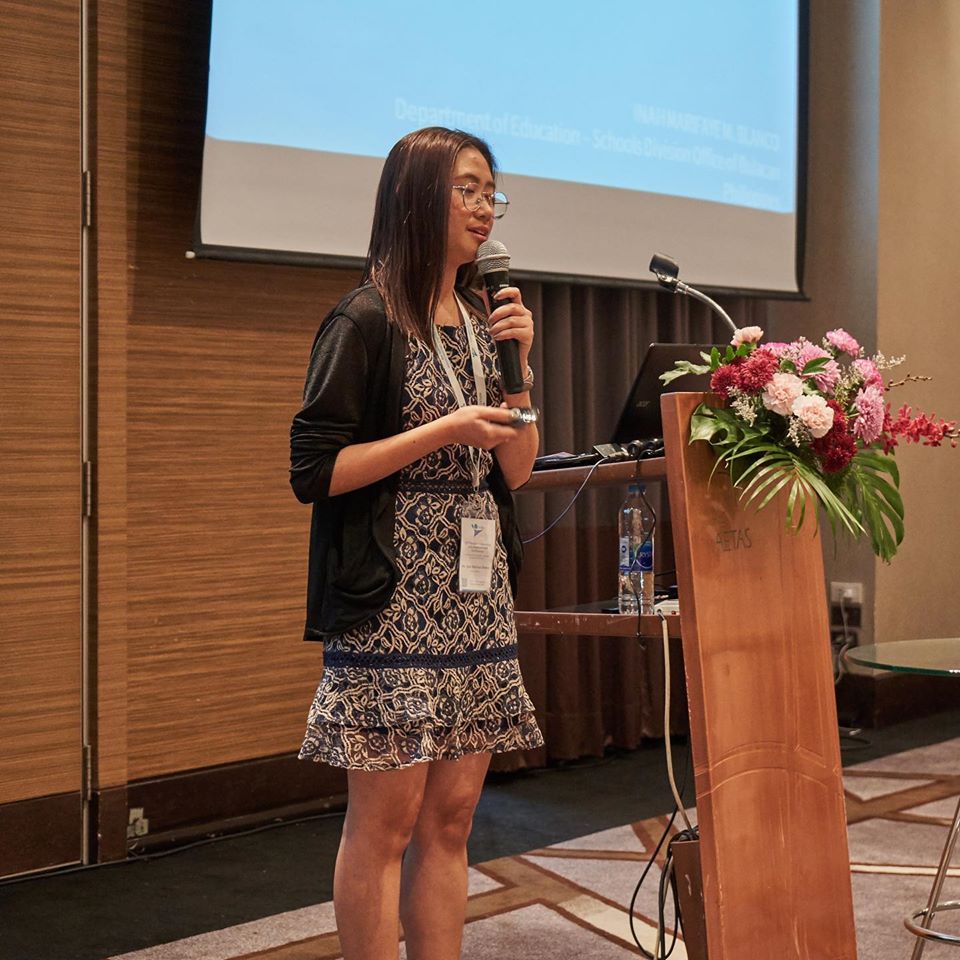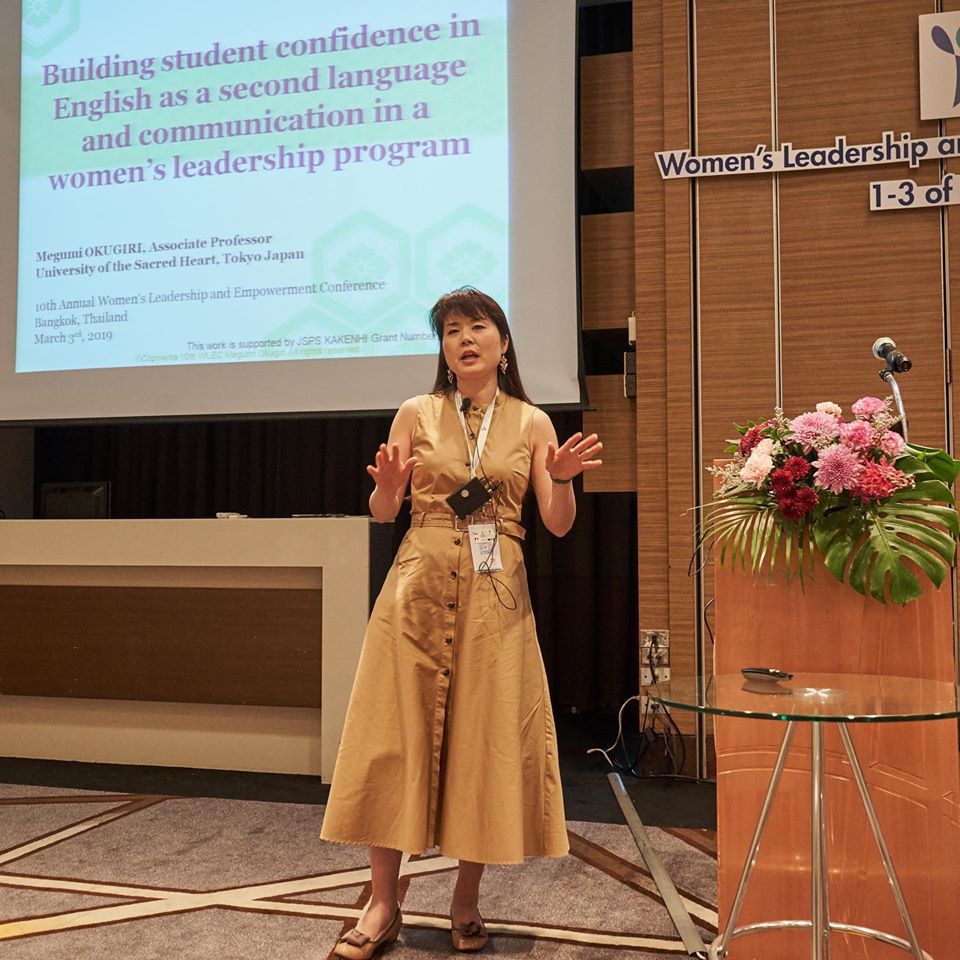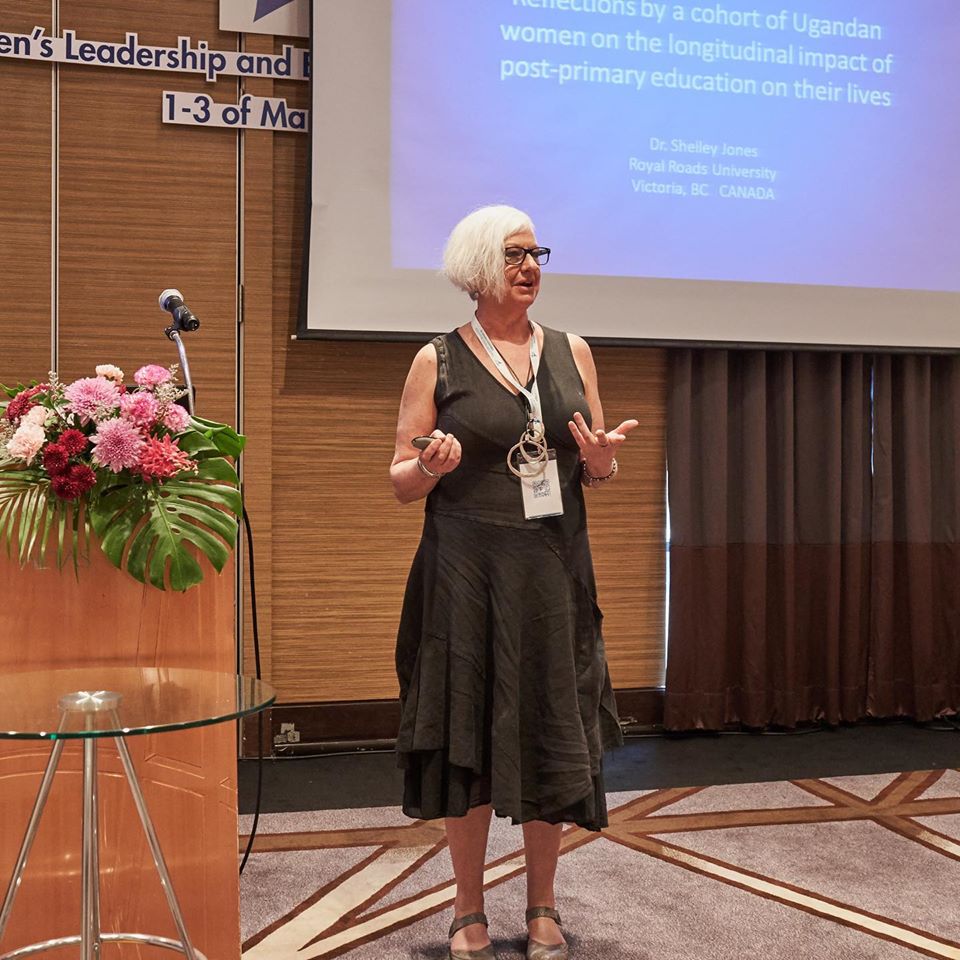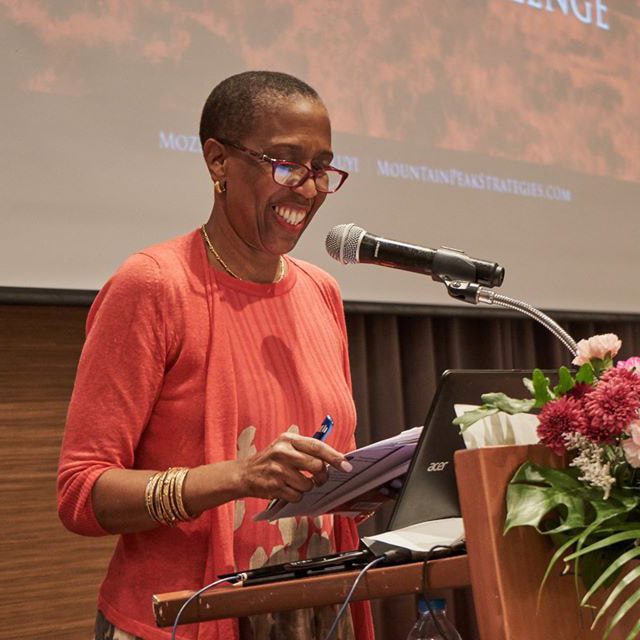10TH WOMEN'S LEADERSHIP AND EMPOWERMENT CONFERENCE [WLEC2019]
1st - 3rd of March 2019, Bangkok, Thailand
Aetas Lumpini Hotel
PRESENTERES
1st - 3rd of March 2019, Bangkok, Thailand
Aetas Lumpini Hotel
PRESENTERES
|
Leading from Behind: A Leadership Model for Women
Dr Victoria Kain, RN, MN, PhD - Griffith University [Australia] In 2010, the Harvard Business Review 1 predicted that in the next decade the most effective leaders will lead from behind. In a phrase used to describe Nelson Mandela, a great leader is equated to a skilled shepherd. Mandela stated: “He (sic) stays behind the flock, letting the most nimble go out ahead, whereupon the others follow, not realizing that all along they are being directed from behind.” A model of leadership further popularized by Barack Obama, leading from behind has been criticized as not leading, but as abdicating 2. While leading from behind may be polarizing, it is widely accepted as being an example of active leadership, requiring the leader to set clear goals, enable innovation and step forward in key moments to unlock everyone’s potential. Leading from behind is based upon developing trust: it takes time to perfect this model of leadership. It has at its core the principles of shepherding, humility, having and conveying a collective vision and the ability to see beyond the surface of the individual’s potential in the team. This practical presentation will explore applications of leading from behind as a leadership model for women to explore how leading from behind is deliberate, not accidental; purposeful, not incidental; collaborative and cooperative and how it works best in times and places of non-crisis. |
|
Patricia Nell Warren: A Front Runner for Leadership and Empowerment
Dr. Nikolai Endres - Western Kentucky University [USA] My presentation is about American author Patricia Nell Warren (born in 1936). To date, Warren has published eight novels (her first one under the pen name Patricia Kilina), three works of non-fiction, and a large number of essays for gay and straight magazines. Her most famous book and New York Times bestseller, The Front Runner (1974), has sold an estimated 10 million copies worldwide, remains the top-selling gay book according to industry publications, and has been translated into several European languages plus Japanese and Chinese. The Front Runner was the first novel to deal sympathetically with homosexuality and athletics, a topic that remains timely and controversial; the novel is also slated to become a major motion picture, which will dramatically increase Warren’s profile. A prolific author, Warren engages with the threat to native American heritage, Catholic celibacy, homophobic politics, Mother Earth as the supreme goddess, a gay bullfighter in fascist Spain, Ukrainian pride, and contemporary issues. Her novels have frequently been used in gay literature and American history courses, as well as by college reading lists, therapists, and ministers. Because of her versatility, Warren has wide appeal, which makes it all the more surprising that virtually nothing has been published on her (almost no scholarly analyses, no books, just a few short pieces in popular magazines). It is time to pay attention to Warren, a woman who embodies the very core of this conference: leadership and empowerment. |
|
Older Women Breaking Forth as Unfamiliar Power Sensations To Live The Vibrant Life
Dr. Geneva Williams - CEO Dr. Geneva Speaks [USA] video presentation Older women are taking back their lives and reinventing themselves in unfamiliar facets. These women are power sensations. Younger women are strong. But the older, seasoned women know the way to the vibrant life. Women no longer allow aging and looks to define their next moves. Women of a variety of ages are appearing more in the media across the globe. Their alluring faces are shining brightly on TV ads, magazine covers and headliners and all over social media channels. And women over 50 are taking on leadership positions in government, business, media and politics. Older women have faced many life challenges. They understand longevity, tenacity, endurance, creativity and continue to walk in strengths unimaginable. Women ages 50 and up confront daily woes in fresh innovative ways. They show faith in the face of adversity; give wisdom as leaders to Gen-Xers and Millennials, and take on higher status positions in the workplace. This presentation examines the lessons learned from the professional and personal lifestyle of older women who become influencers and reach new heights of success. What we learn will help all women start businesses, change careers and use our voices in new powerful and meaningful ways. |
|
The Role Of Omani Wome's Role in Political Pariticipations
Dr. Sharifa al Yahyai - Former Minister Of Social Development [Oman] I will try to share my own personal experience as an example of Omani women’s political participation who proudly serve the country and who have left some marks and efforts to empower the people of Oman in general, and the women of Oman in particular in the fields of legislative and social and economic levels. My responsibilities were social development which covers social security, disability, child and family affairs, NGOs and others. But my major concern was improving the legislations to increase women rights and terminate any discrimination against women within the whole society and amongst women themselves. Such legislation and amendments have played a great role in empowering women of Oman. Finally, the period from 2004-2011 was not an easy period but it was a turning point in my life and my family. The societal reactions against some of legal amendments from both men and women were tough, and revealed social values and norms which are more profound than written rights. These anti-women values encouraged me to believe that women’s issues cannot be left for the public to deal with but that the government has to interfere to narrow the gender gap between men and women mainly through political and economic participation. |
|
Growing as Individuals
Ms. Valerie Nechesa Luvonga - Kenya School of Law [Kenya] Growth is about “a reunion with your true self”. Sometimes it is very easy to loose yourself and try to be someone else but this compromises ones personal growth. I like comparing people to chocolates. People have different preferences when it comes to chocolates and this also applies when it comes to people. Most people prefer white and milk chocolates over dark chocolates due to its bitter taste. However, dark chocolate has health benefits unlike its other 2 counterparts. You might be favourable/preferred by some people and disliked by others. Do not compromise yourself, morals or standards in order to please/be favourable to everyone. Strive to be true to who you are even though it might not please everyone (just like dark chocolate). Being honest and true to yourself will be beneficial to your own personal growth. Do not ‘dilute’ yourself just so you can please others. Do not be a white chocolate, it’s fake and does not even qualify to be called a chocolate according to chocolate purists (white chocolate contains no cacao at all and is simply made up of cocoa butter and sugar and occasionally a little vanilla for flavor.) The same way the cocoa/cacao solid contents in chocolate defines the richness of chocolates is the same way the content of a person’s character determines the richness of their personal growth. |
|
Accessing Your Strategic Voice: Stepping into your Leadership with Confidence, Courage and Compassion (3Cs)
Ms. Wendy Perdomo, MPA, M.S.Ed. - Leadership & Life, Coach Coaching Women of Color [USA] Dr. Shelly Perdomo-Ahmed - University of Massachusetts [USA] According to the United States Census data from 2017, women are outpacing men in attaining a college education and advanced degrees. While women hold almost 52 percent of all professional-level jobs American women lag substantially behind men when it comes to their representation in leadership positions (Warner and Corley 2017). The representation of women of color in corporate leadership roles is even worse. In fact, it has been estimated that at the current rate of change, it will take until 2085 for women to reach parity with men in key leadership positions (Warner and Corley, 2017). We recognize that there are factors that impact the challenges women face in advancing their careers, the presenters will share some of the research that contributes to the lag. We will define strategic voice as a process of stepping into your essence, courage, confidence and the impact it creates in your life, providing new access to personal growth and awareness and elevating to new levels of leadership. Presenters will share real life examples of using your strategic voice in various settings. Participants will leave this workshop with tools that women can practice to elevate their voice and redefine success by choosing to create the life they want and not settle. Tools will be aligned to the 3C approach: Leading with Confidence, Courage and Compassion. |
|
Unleashing Your Full Potential
Ms. Shyrell Hobson - S.E.E.D [USA] We all have a designed purpose and plan for our life. Whether it be entering motherhood, becoming a business executive, and/or an entrepreneur; we all share similar experiences. The truth is, we all have the power to overcome, through resilience. Resilience is not a distinctive trait, but one that is developed through life challenges. It is not the changes in life itself that holds us back, it is how we decide to face it, when it occurs. Unfortunately, 98% of people die never fulfilling their full potential or become like millions of people that are living with mental health issues. While the other 2% of human beings tap into their greatest gift to self and that is willpower. You can become and accomplish anything in life! Your successes, greatness, and potential are determined by you alone; and all the characteristics necessary to achieve your goals and dreams already lie within you. Stop depending on others to get you through, or pep talk you up; but utilize your power! To reach your full potential in life we must discover our purpose, set boundaries, and remain resilient. Are you living your full potential? Are you ready to become unstuck? Are you taking the necessary steps towards becoming the best you? As a committed Educator, Author, and Resilience Coach; Shyrell Hobson delivers a touching and an unforgettable experience as she approaches all audiences with great empathy. |
|
Caregiving Tools for the Professional Woman
Ms. Elizabeth Moncrief Chaney - Black Girls CODE [USA] Let me introduce you to technology that will aid you as you juggle a successful career and family demands. Most traditional family dynamics dictate that women in the family will attend to the needs of parents or other relatives as they age. However, as women discover more challenging careers and expand as entrepreneurs, they must find better ways to manage these roles, without sacrificing their creativity and passion. It is my goal to suggest technology that will change how we meet the demands of our traditional roles as women. This research will show caregivers how voice-activated devices can help to improve the lives of family members. These devices can also help the busy professional manage their business using language translation technology. The main benefit of this technology is to make daily chores easier. As caregivers and business professionals these tools will help to organize task and improve quality of life for our family. Technology has expanded the way we meet some care giving tasks by using voice-activated devices. In this document I’ve compiled several recommendations of ways these devices can assist with the following: Medication reminders; Doctor appointment reminders; Creating shopping lists; Requesting emergency assistance; Send an alert to family members or relatives ; Ordering food from restaurants; Play music or read an audio book to family member; Request an Uber or Lyft ride; Control lights, heat and other smart devices; Translate foreign languages. |
|
The Role of ADWAR Association in Empowering Women and Girls in Marginalized areas in Gender Issues
Dr. Sahar Alkawasmeh - Roles for Social Change Association-ADWAR [Palestine] Ms. Noor Ali Rasheed Manasra - Roles for Social Change Association-ADWAR [Palestine] Presentation of the experience and projects of the association and its important and effective role in the gender field, the projects of our accusation about our programs, objectives and mission to support and empower women and girls in marginalized areas, review all the problems experienced by women and girls in these areas. ADWA'R supports for women and change men attitude to increase women participation in three fields (Social, Economic and Political) programs in order to reach gender equity rights and social justice. We believe that change can only come through gender and development approach. Raising Awareness of Advocacy can therefore have very positive impacts on the formulation of projects and their results in the social domain. ADWAR has developed its work and its main course (Gender and Development). It offers a number of programmers to achieve its vision. ADWAR works to modify school curricula to promote positive, non-stereotypical images of women and girls. It also engages with parents and school staff to prevent early marriages and school dropouts and provides psychological support services to girls. View reports and problems and how we've resolved them in order to improve the Palestinian society Awareness and capacity building for governmental and nongovernmental organizations about gender’s policies and procedures as well as the importance of gender’s contribution towards Palestinian society welfare. |
|
Taking Leadership in the Provision of Quality Reproductive Health Care in Low-Resource Settings
Prof. Lisa Morgan - Laurentian University [Canada] The provision of quality reproductive health care depends not only on the availability and accessibility of care, but also on the acceptability of the care provided. Acceptability requires that the same principles captured in respectful maternity care, are applied to the provision of reproductive health care, in general. Women want to be able to communicate with their providers. They are looking for a positive care environment, devoid of judgement and shame, with providers that are able to display empathy and patience, and the opportunity to develop a trusting relationship through continuity of care. Termed “relational care”, women are seeking this approach and it can be taught, learned and practised, as many health care providers the world over have become experts in this care. Although a lack of resources will always present challenges that may not be subjectable to amelioration, other factors preventing women from accessing care are more amenable to change, and as argued here, this is a right of women and an obligation on the part of governments to provide equitable access for all women to health care services. We need to create the care that women want, respecting all of our rights to well-being. |
|
Women’s Role in the Family Economy
Dr. Mohammad Mahdi Safouraei Parizi - Al-Mustafa International University [Iran] A stable economy and a source of income for one’s livelihood are the most basic and essential issues affecting man’s life continuously and constituting his serious concern. The economic system dominating the family should be in a way such that it should be able to improve human life at any age and overcome difficulties and obstacles. In this connection, studying the family economy and management practices, explaining the economic fundamentals of the family and the role of each member of the family in its management are of special importance. Identifying the correct consumption pattern in the family and describing successful strategies in family business management are very essential. Undoubtedly, every member of the family that makes recourse to proper arrangements plays a major role in the family's economic management. The women, keeping in view their status and responsibility, play a much more important role in this regard. Simplicity and staying away from pompousness, showing solidarity and intimacy, reducing wastefulness, creating a spirit of patience and perseverance and attention to the poor are some of the effects of proper economy in the family and society. Hence, this research highlights the way the families can be financially managed so that it would be able to do away, to some extent, with the economic problems existing in the families. |
|
Global Village Field Experience: Fostering Leadership, Confidence, Sustainability Attitudes, and Asset-Based Community Development Skills at a Women’s University in Japan
Prof. Robert Dormer - Hiroshima Jogakuin University [UK/Japan] poster presentation This research comprises quantitative, qualitative and case-study methodologies, focused on data collected during a two-semester component of a Global Studies program in a Japanese women-only university, together with substantial discussion of and reflection upon the curriculum and pedagogy. This two semester program (Global Village Field Experience’) comprises two 15-week semesters structured around a 12-14 day ‘Fieldwork’ event held in Central Vietnam, especially in and around Quang-nam province. The preparatory classes approach Vietnam and sustainability/globalization issues more generally from an Education for Sustainable Development (ESD) perspective, but also with a second-language content pedagogy concern (this issue is relatively under-researched and reflection on how to balance this constitutes the earlier portion of this research). Further, learners are trained in asset-based community development (ABCD) tools (resource and attitudinal mapping etc.), that they later utilize during the fieldwork component. The fieldwork component itself is explained through the multiple engagements with social and ecological sustainability projects afforded to participants. The subsequent class-based sessions see learners initially reflect on their development and experiences, but then move on to an extensive self-led local project proposal. Aspects of learner leadership confidence, cross-cultural understanding, ABCD skills, and attitudes to a range of sustainability issues are investigated through both quantitative and qualitatively. |
|
How To Be A Goal Digger - Achieve Your Goals
Ms. Alison Vaughn - Jackets for Jobs [USA] Alison Vaughn is from the United States. A Detroit, Michigan native, Vaughn is a sought-after public speaker nationally and internationally. She is the founder of an award winning company, Jackets for Jobs (JFJ). Jackets for Jobs, Inc. provides clients with career skills training, employment etiquette training and interview or work appropriate attire. The company is based on the following premise: If a person doesn’t have a job, they can’t afford career clothing. Yet, without appropriate attire for an interview they can’t get a job. It’s a Catch-22. Since opening its doors nearly two decades ago, JFJ has assisted over 27,000 job seekers. Jackets for Jobs, was recently honored as one of the Best and Brightest Companies to work for by the National Association for Business Resources (Oct 2018). Alison was named by Crain’s Detroit Business as a “Notable Woman In Non Profits” (Dec 2018) and she was featured in the (Feb2019) issue of HOUR Magazine as a Women Who Move Detroit. The organization has also been featured in Oprah’s O Magazine and has been recognized by ABC’s “The View”, NBC’s “Today Show” and NASDAQ as a worthy organization to support. Alison noticed that many of the participants that were referred to JFJ program did not have goals in life. So she wrote a book, Ms Goal Digger, Success is Sexy! |
|
Empowering Girls in a Thai Juvenile Detention Center through “Unlock Unwrap” Project
Ms. Sophida Kanchanarin - Miss Universe Thailand Organization [Thailand] Unlock Unwrap Project was conceived and initiated by Sophida Kanchanain, Miss Universe Thailand 2018 and Top 10 Miss Universe 2018, to encourage young generation to discover their true identity, abilities and potentials. This Project had been successfully implemented with thousands of students. The purpose of this study was to evaluate the impact of the project on girls in Baan Pranee Juvenile Vocational Training Center. Participants (n=101) rated their pre- and post-course confidence using a five point Likert Scale (1 = not at all confident to 5 = very confident) across 5 domains (dreams for the future, dare to follow the dreams, self-confidence, self-esteem, and thought of helping others). Chi-square and T-Test were used with p ≤ 0.05 being significant. 85 surveys were completed (84.16% response rate) the results showed that the confidence level (CL) of participants escalated in all 5 domains. Self-confidence CL was the highest increase from 2.89 to 4.41 (p < 0.001). This study indicated that the project implementation has significant positive benefits on juvenile delinquents. Unlock Unwrap Project can inspire juveniles to overcome their fears and live their dreams. |
|
Transformational Thai Women Leaders Fighting for Social Justice, Equity, and the Common Good
Prof. Gerald Fry - University of Minnesota/Chualongkorn University [USA/Thailand] Dr. Nuttaporn Lawthong - Chulalongkorn University [Thailand] Background - The noted Thai scholar of income distribution, Mehti (2018) argues that inequality is the most important policy issue in Thailand. Interestingly numerous Thai women leaders have been striving to reduce such inequalities. It is important to study carefully their success stories of working to attain this goal. Research Objective - The goal of this paper is to profile 10 important diverse transformational Thai women leaders who have been fighting for social justice, equity, and the common good. Proposed Methodology - Multiple case studies represent the methodology(Yin & Campbell, 2018) of this study. The life histories of 10 women will be presented sharing their success stories in fighting against social injustice. Two research methods will be used to generate the valuable case study data: 1) in-depth qualitative interviews with the leaders (some have already been done) and 2) analysis of secondary data about the women and their leadership. Theoretical/Conceptual Frameworks - Two theoretical/conceptual frameworks guide this study, namely, transformational leadership (Arenas, et al., 2018; Burns, 1978, 2010; Marques & Dhiman, 2018), and the cosmopolitan ethic (Appiah, 2006). Expected Outcomes - The major outcome of this research study is to develop insights into how women’s transformational leadership can contribute to the common good. |
|
Case Study: Turning Entrepreneur Dreams Into Reality
Dr. Nicole Farmer - LifeLine Business Consulting Services [USA] I started my journey of entrepreneurship at a very young age. Impoverished life as a single teenage mom, battling homelessness and hunger, were only a few of the personal barriers that I was forced to overcome. It was through these experiences that I saw a compelling need that was essential to be addressed and I felt as if it was my responsibility to try and make a difference. Through the past few years, I have dedicated my time to identifying the different community barriers and building strategic solutions so that it would allow us to introduce entrepreneurship and new career paths for these community members. One of the main challenges found, is that most entrepreneurs have great business ideas but don’t possess the capital to launch and prove the idea which is necessary for funding applications. As a LifeLiner, we service as a conduit of information and provide support to prepare clients to become “Loan Ready”. Then, refer those entrepreneurs for micro and small business loans to be used towards start-up capital, equipment and property leasing. We also assist by providing access to organization programs that award cash grants to small businesses. Our ultimate goal and mission is to help one community at a time and get as many people / organizations involved that can help these members bring their dreams into reality. |
|
TAP N2 the Power in You
RevDr Anita Caprice Powell - Creative Thought Academy [USA] As a child, I had a low self-esteem. Although surrounded by loving family, I felt incomplete and inadequate. This was due to being unaware that inside me was the presence of all I needed and more. I always felt I didn’t know enough, or I wasn’t enough; I wasn’t worthy to believe in a dream. Although the journey of recovering who I am began as a teen, the path traveled as an adult, came with experiences mirroring those limited beliefs. It was in 1998 after 19 years tenure with the Michigan Department of Corrections, I departed on a wing and a prayer to recover the truth of who we are. For those 19 years, being a single parent, my dream was a hope for my twin daughters. In 1998, as the dream coming to fruition, my heart propelled me to step out on faith. Feeling the fear, I did just that. This journey has taught me, unworthiness and incompleteness not an idea solely mine; it is felt by many women sharing the same sentiment of self. As such, it is my honor and passion to share with women via Spoken Word delivery the message You are enough. It’s all about believing in self, the beauty within and living LIFE from the Inside/out - TAPN2 the Power in You. |
|
Women and Leadership – Case Study of Africa
Ms. Jane Margaret Ochami Sasaka - Government of Kenya [Kenya] For a long time, African women have fought for leadership positions, coming together to form organizations that can help them raise above the many myths that women can never be good leaders. They have done this with less support from the top leadership whose huge composition is male. Many are times women leaders in African have been discriminated against by the leadership systems and male dominated field by accusations of being corrupt, poor management style, incompetence among others. In Kenya, some male politicians have publicly criticized women leaders in Parliament, declaring that they cannot pass/ support the two-thirds gender rule, which requires women to have a certain number of presentation in Parliament, as stipulated in the Constitution. Today, the women in Africa have put their feet down through organizations that support women empowerment to demand for their share of the cake. This has not been easy but they are making a huge impact. We have seen Africa produce female presidents, top corporate managers and tough female politicians. As Joyce Banda, Former President of Malawi said, “The seeds of success in every nation on earth are best planted in women and children”, Africa is for sure reaping the fruits of Banda’s statement. |
|
Becoming A Global Impact Leader
Dr. Anita Davis-DeFoe - The Global Cottage [USA] Organizations have become global, more ethnically diverse, in a marketplace that is experiencing rapid change. Additionally, employee engagement worldwide is at an all-time low as reported by Gallup. Now organizations, more than ever before, require leaders to embody both a local understanding and a global perspective. In this session, Dr. Anita Davis –DeFoe details ten actionable skill-building strategies that can elevate one’s impact as a leade, better ensuring that you are a multiplier and not a diminisher. With core leadership competencies as the foundation, infusing these upskilling approaches can serve to equip a leader, emerging or seasoned, with the tools to guide high performing impactful teams and organizations that achieve results. Dr. DeFoe offers in this session strategies for sharpening your proficiencies and influence as a global leader. |
|
Global Café’s Let Girls Learn in Wejerat, Ethiopia: Gender Awareness and Women Empowerment
Mr. Ashenafi Abadi Elyas - Shinshu University [Ethiopia/Japan] We will make a report on Global Café’s efforts to spread awareness about gender equality in the process of solving a real-world problem, that is “many girls are deprived of educational opportunities due to poverty and traditional values in a small village, Wejerat, Ethiopia.” Global Café is a student-centered activity at Faculty of Engineering, Shinshu University, Japan, and Japanese and international students discuss a real-world global problem with an attempt to gain global leadership and cross-cultural communication skills. In 2018, we chose “gender inequality and bias” as a global problem and discussed gender problems and efforts to empower women in various nations around the world. In search for our solution to “Let Girls Learn” in Wejerat, Ethiopia, we visited the Embassy of Ethiopia to present our project and organized “Let Girls Learn” workshop with scholars in various fields, industry engineers, and Ethiopian embassy officers and students. As a result, we decided to support a female student from Wejerat to enter our Master/PhD program (Japanese lessons, fund-raising, etc), hoping she will be a role model for all the girls and women in small villages of Ethiopia. Being involved in our “Let Girls Learn” project, students are becoming more aware of their own gender bias and various social/political/economic issues related to gender in Japan and the rest of the world and are beginning to understand that women empowerment is also men empowerment and is essential for sustainable development. |
|
I Was Born To Lose, But I Chose To Win: 7 Steps To Reshaping Your Destiny
Ms. Tinesha Cherry - Tinesha Cherry Speaks/CEO, She Strong International/Founder [USA] Many words have been used to describe the circumstances of my life; however, easy has never been one of them. As a child born to a mother addicted to heroin, born with heroin in my system, abandoned by my mother, never knowing my father, being subjected to physical, mental and emotional abuse and molestation, living in extreme poverty and enduring the foster care system before finally being adopted, I was counted out and forgotten about before I even hit puberty. With such an impoverished background, the world set low expectations for me and even lower expectations of me. Despite constantly being told that I would likely never achieve success, I chose to fight back to break the chain of poverty, self-pity, doubt, hopelessness and helplessness. I chose to stand to my feet when it would have been easier to stay down on her knees. I chose to win despite being born to lose. Having personal fortitude and resilience was a game changer for me. Today, I am a devoted advocate, advisor and leader in support of women and youth development /advancement. My work through my foundations Project D.R.E.A.M. and She Strong International is dedicated to helping some of the most disadvantaged individuals in our community/society, dream beyond their reality, overcome insecurities, build confidence, courage and character and take the actions necessary to contribute to the realization of their goals, dreams and aspirations. |
|
Own Your Story, Amplify Your Influence: Storytelling for Leadership Empowerment
Ms. Laura Reid, M.Ed. - Storyforth [USA] Purpose: There is an old Hopi Indian proverb that states, “Those who tell the stories rule the world.” Everyday leaders are vying for attention on multiple platforms. How do you rise above so that your message and mission will inspire those you lead? Method: Through engaging discussion, compelling slides and scientific research, I will show why storytelling is so effective when applied to empowering women leaders. I will illustrate how to use key storytelling strategies by leading participants through a process to create their own powerful stories. I will demonstrate how to apply this same process toward their professional leadership goals. Time for sharing these stories and questions will be allotted. Results:
|
|
Wake up the Leader within You
Dr. Mary Segars - Segars Consulting Group [USA] Being an entrepreneur is such a joy to me as I really enjoy assisting and serving other people, especially women. Most of my life, it was very natural for women to gravitate to me to seek my counsel for answers to questions they had. It was my pleasure to explore their possibilities and to challenge them to search for their answers or solutions. It's always refreshing to see a woman bloom into her authentic and powerful self. As a self-starter individual, my parents instilled in me to be a part of the solution rather than to discuss the problem. There are challenges, as well as rewards in entrepreneurship. However, I remind myself of my "why" I wanted to be my own boss. Knowing that I provide the best service to my clients with integrity that exceed their expectation is very rewarding. Our goal and mission are to ensure that every woman come to recognize their authentic self and to understand their value and worth. Every woman will be empowered, grow and learn to be the best person she was created to be. |
|
Girls Making Change: Empowering High School Girls to Run for Office and Create Change
Ms. Amina Khalique - Wayne State University [USA] Ms. Gabriela Santiago-Romero - University of Michigan [USA] Girls Making Change is an annual 10-week paid fellowship for girls of color in Detroit who are interested in gaining an abundance of skills in leadership and social justice training. The ultimate goal of the “Girls Making Change” Fellowship is to encourage and inspire high school girls of color to someday run for public office. Through a series of leadership and skill building sessions, the Change Fellows develop a better understanding of community and justice issues, as well as ways to be civically engaged to work towards change. The fellows are involved in social justice leadership training and workshop sessions, speaker series, development of community action projects, learning how bills are developed and passed, and shadowing of Michigan women of color elected officials. This fellowship provides girls an opportunity to increase social justice leadership skills, gain hands-on experience in community action and public policy, and learn how community change is accomplished. Many times, we are told that the youth are our future. Girls Making Change believes that indefinitely, but more specifically believes that young women of color are the future. With that being said, this program simply prepares girls of color to change the world, and ultimately, to run it. |
|
The Supreme Student Government: Sowing the Seeds of Leadership Among Young Learners
Ms. Inah Marifaye M. Blanco - Department of Education [Philippines] The study was conducted to determine the role of the Supreme Student Government (SSG) in sowing the seeds of leadership among young learners which may contribute in addressing youth-related issues. It sought to describe the functions and responsibilities, objectives and mandated programs, projects and activities of SSG officers. Moreover, the study was done to assess the SSG’s level of performance in addressing youth-related issues in the school. The respondents and informants of the study are teacher-advisers and officers of SSG for the School Year 2018-2019 of select public secondary schools in the Division of Bulacan. Sequential explanatory mixed-method design is used to expound on sowing seeds of leadership among learners through the SSG which may contribute in addressing drug addiction, teenage pregnancy and bullying. The following conclusions were derived: (1) SSG and co-curricular clubs and organizations serve as training grounds for the youth; (2) SSG officers and teacher-advisers play a significant role in addressing social issues, however, issues on the level of performance in addressing teenage pregnancy got the lowest level; (3) among the core attributes and characteristics, teacher-advisers and SSG officers manifest high communication skills; and (4) SSG contribute in addressing youth-related issues through consciousness-raising campaign, seminars, and symposia. |
|
Building student confidence in English as a second language and communication in a women’s leadership program
Dr. Megumi Okugiri - The University of the Sacred Heart [Japan] It has long been controversial how second language learners use English as lingua franca and how non-native speakers could crack the glass ceiling as a global leader, and the issue is getting more attention in Japan due to the women’s movement and advancement. According to the Global Gender Gap Report 2018, a criterion illustrating the gap between male and female in terms of economic participation, education attainment, health, and political empowerment, Japan ranked 110 among 149 countries due to the low economic and political participation. Because of this report, there has been more recent attention in Japan and government awareness of women’s empowerment. However, the number of women in Japan who have participated in society and politics is still very small. Therefore, at a higher education level, universities are placing more emphasis on women's empowerment and leadership. Besides, English communication skills are considered as essential for students and advancement globally. However, unfortunately most students are not confident in their English-language skills and do not feel comfortable using English. This paper describes educational effects on women’s empowerment in a leadership development program at a traditional women's university in Tokyo, Japan, where the whole program is conducted in English. |
|
Why girls’ post-primary education matters: reflections by a cohort of Ugandan women on the longitudinal impact of post-primary education on their lives
Dr. Shelley Jones - Royal Roads University [Canada] Assumptions abound that education for girls will lead to their empowerment as women (Bokova, 2014) as well as their ability to transform and enhance the well-being of their families, communities and societies at large (UNESCOPRESS, 2011). Sustainable Development Goals (SDG) 4: Ensure inclusive and equitable quality education and promote lifelong learning opportunities for all, and 5, Achieve gender equality and empower all women and girls represent a strong global commitment to girls’ education and gender equality. Uganda has aligned its educational priorities with these goals through the implementation of Universal Primary Education (1997) and Universal Secondary Education (2007), as well as the National Strategy for Girls’ Education (NSGE) (Ministry of Education and Sports, 2014). Yet, few longitudinal studies document the ways in which schooling in reality impacts the lives of girls, such as those in rural Uganda, who traditionally/historically would likely not have had opportunities for post-primary, or perhaps even primary schooling (Unterhalter, North, Arnot, Lloyd, Moletsane, Murphy-Graham, Parkes and Saito, 2014). In response to this gap, this paper reports on stage four of a longitudinal, participatory, ethnographic case study (2004-2018) focused on education and empowerment for girls in rural Uganda. 13 of the15 participants from the original study participated in interviews, focus group discussions, shadowing, and a workshop, which explored their understandings of how/if post-primary education contributed to their empowerment. |
|
Essential Pathways to Further Empower Women Leaders to Achieve Their Outcomes and Desires
Ms. Mozella Perry Ademiluyi - Mountain Peak Strategies, LLC [USA] Identifying the biggest challenges professional women face is a much-discussed topic. Often, they center around what she can do and achieve in her outer world. Some women believe that to achieve their outcomes they must simply accept the steps and tasks in front of them and plunge ahead. This is a philosophy that debates the difference between power vs. force. Power could be identified as a female energy, the latter a male dominated one. Mozella’s experiences have taught her that the truly empowered woman will achieve what she desires when she realizes that she is more likely to reach her goals when she embraces how to confidently rise to the challenge, lean within her inner power and wisdom and then take bold, consistent action steps to achieve her dreams and outcomes. Mozella will take participants on a metaphorical adventure that guides change and transformation and explores what they can do differently to go all the way to their summit of success. The act of embracing – this internal learning – achieves desired outcomes because of the underlying foundation that empowers her from the inside out. Mozella acknowledges that women in countries and cultures all over the world, including the western world, will have a different layer of work to do, unlike their male counterparts, to achieve the results they seek. By no means does she believe that there is a quick results formula. |
Tomorrow PeopleTomorrow People Organization
Dusana Vukasovica 73 11 000 Belgrade Serbia Tel. +381 62 680 683 www.tomorrowpeople.org TERMS AND CONDITIONS |
Copyright Tomorrow People Organization © 2002-2024, All rights reserved.
